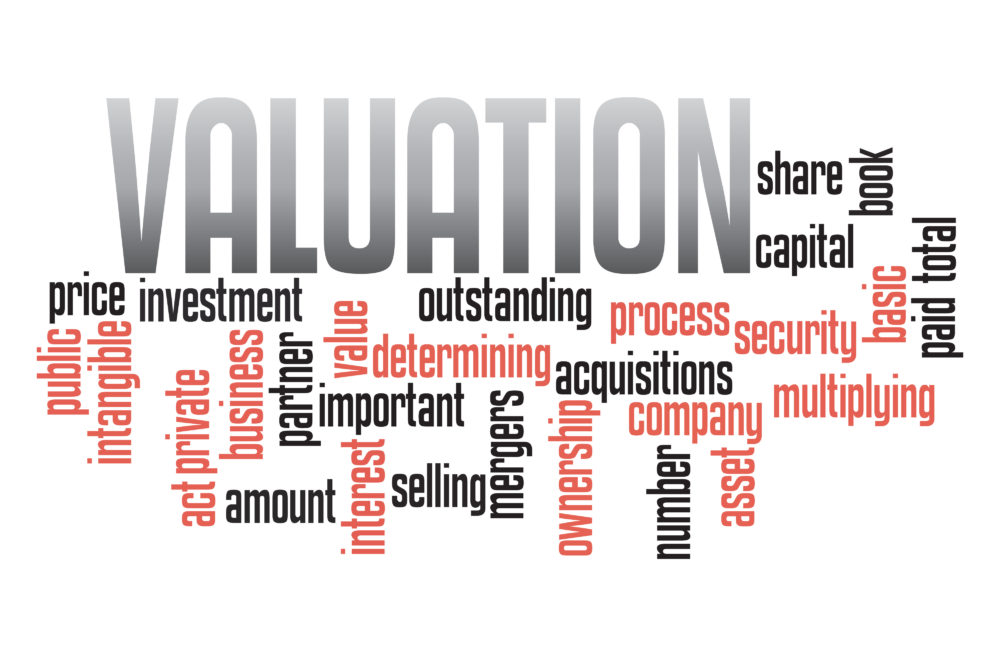Valuing your business for sale
I have been selling businesses for over 35 years and have by now probably sold more than 4,000 businesses. Valuing a business for sale is a key question for any small business owner. Obviously the first question all vendors ask is what’s my business worth?
The pat answer is what someone is prepared to pay for it but there are a number of useful methods that can refine and bring logic to the answer. We sell businesses worth anywhere between £100,000 to £7m and so what I say below doesn’t necessarily apply to higher value businesses.
Be realistic from the outset
In their heart of hearts it is my experience that most vendors have a pretty fair idea of what their business is really worth. They are really looking for affirmation from a broker. There are brokers who will prey on the vendor’s greed to get an instruction by suggesting a ridiculous price, or a vendor will be pricing his business on what he needs rather than what it’s worth.
I also often have the conversation with a vendor in which they say “let’s start high, we can always come down”. None of these strategies will do them any favours. Buyers are trawling through hundreds of business listings and will see a high number of opportunities. It is human nature that they will assume that they can discount the asking price by at least 10 per cent but if they see a business for sale at a price that is clearly out of whack with the market or which has no relationship with the fundamentals of profit and net assets, then they will simply move on to the alternatives. Buyers have only a certain amount of time and capital to spend and they don’t want to waste either dealing with a vendor with unrealistic expectations.
When valuing a business for sale, I often ask vendors what they would pay to buy their own business. The answer is usually fairly sobering.
>See also: How to sell your small business through a broker
P/E’s vs multiples
I have yet to encounter an accountant acting for a vendor who doesn’t think his client is under-selling and one acting for a buyer who doesn’t think they are over-paying.
Multiples and p/e’s are bandied around but there are often misconceptions and misunderstandings around these phrases.
A p/e is based on the profit after tax and after all imputed replacement management costs. A multiple is based on the profit before tax and sometimes before imputed replacement management costs. So the number being multiplied can vary widely as can the multiplying number.
In the sub £7m transaction range, we tend to use pre-tax multiples. Multiples vary from 1x to 6x. The size of the multiple will depend on a variety of factors:
#1 – Reliance on the vendor
Most vendors say that they are not critical to a business’s success. That is usually not true and like a skipper of a yacht, even though the crew does most of the work, they are needed for critical decisions and to ensure the boat runs smoothly. These types of vendors can be replaced over time but vendors with particular and specialised skills and expertise are much harder to replace.
#2 – Size and stability of the business
A business that can show 10 years of seamless trading and improving profitability is going to be worth more than a business that has had one epic year in five modest years, or a business that didn’t exist two years previously.
#3 – The sector you’re in is important
Some sectors just aren’t sexy and some are wagon wheel makers in the age of the motor car; while some businesses are right on trend and enjoying their moment in the zeitgeist. Certainly businesses with large manual processes and high overheads are going to be much harder to sell than businesses that are nimble and quick footed.
‘I often ask vendors what they would pay to buy their own business’
#4 – Location, location, location
Businesses in less populated parts of the country are going to attract fewer buyers and will command lower prices.
#5 – Customer spread and type
The age-old axiom of putting all your eggs in one basket applies equally well to customer spread. Even if that customer is ultra-blue chip or the government, buyers will see the risk that the customer could change its mind or suppliers at any time.
#6 – Previous years’ performance
During Covid, many businesses have seen a dramatic change to their fortunes. Some have done exceptionally well, and others have barely survived. Buyers will not value a business on just one year of exceptional performance but will look at previous years and the continued sustainability of the improved performance.
Meanwhile, perhaps unfairly, buyers will seek to buy businesses which have suffered at discounted values based on their latest numbers. It will be up to the vendor to decide whether to accept a fire sale price or wait until the business has improved and then sell off an improving trend.
Valuing business for sale – net assets
Some businesses like engineering companies will have significant assets and which may distort the valuation. Just because a business has a lot of assets or it would be expensive to replace those assets, doesn’t mean that the business is more valuable than a service business with little or no assets on the balance sheet.
Buyers are dispassionate and looking for a certain return on their capital. They will not pay inflated values for assets and will see assets which contribute to the ability of a business to make sales, as part and parcel of the overall goodwill value.
A business value is made up of a combination of Goodwill premium and assets. The value of the Goodwill can be depressed by the size of the assets. For example, an engineering business with £2m of assets making £200,000 profit per year is likely to be worth net asset value or less. On the other hand, a service business making £500,000 per year and with little or no assets is going to be worth a multiple of that profit.
Understanding what the balance sheet will look like at completion is a critical part of valuing a business for sale.
The simplest way to do this is to create a projected balance sheet assuming no cash and no debt, that gives you a projected Net Asset Value. You can then use a £ for £ ratchet on the final sale price to reflect any movement away from the Projected Net Asset Value in the final completion balance sheet. This methodology accounts for debt, net surplus cash and any rise or fall in net asset value leading up to completion.
Valuing business for sale – return on capital
Ultimately though the total enterprise value will be based on a return on capital. In my experience most buyers at the lower end of the market are looking for between 50 per and 20 per cent return on their money. Where a business sits in that range and the size of the return required by a buyer will depend on the risk factors, the sector, the opportunities and the keenness of the buyer to do the deal.
Rupert Cattell is managing director of business broker Turner Butler
Further reading
How to sell your small business without a broker – Small Business guide




